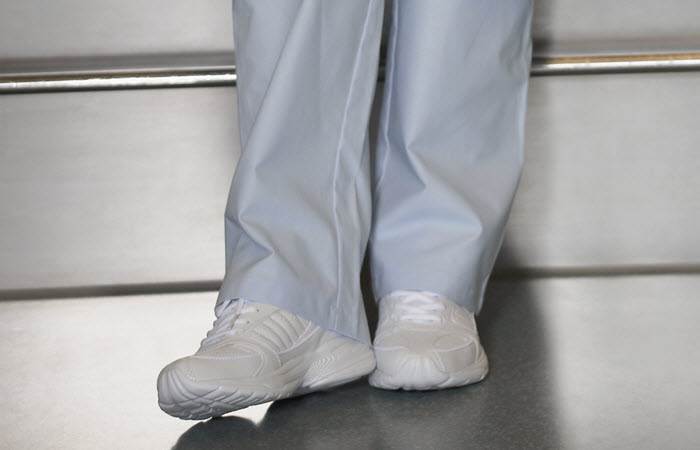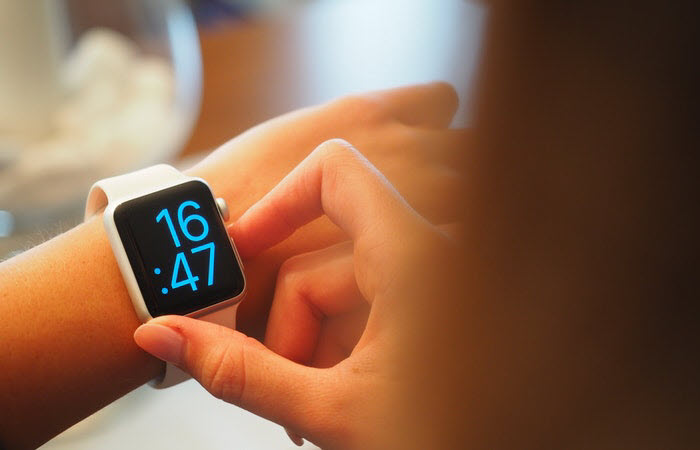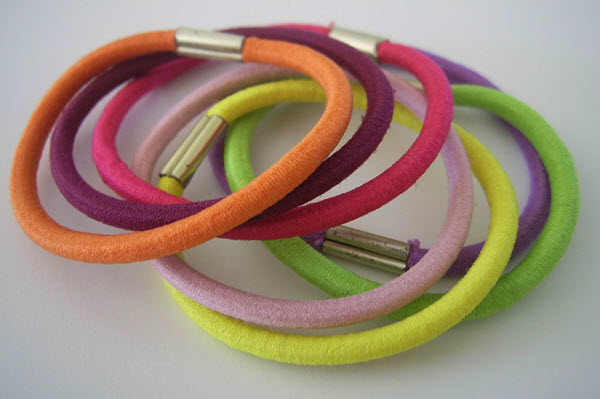9 Pieces of Clothing that Every Medical Professional Should Own

Your choice in clothing at your medical job projects an image to your patients and colleagues. Depending on your field and primary clientele, you may want to promote a more relaxed image or a more professional “starched” image.
Regardless, whether you are a medical assistant, a nurse-in-training, or an ER doctor, there are key articles of clothing and accessories for medical professionals. You want to be prepared for comfort, style, and efficiency so you can get the job done for your patients and project an image of confidence.
A Comfortable Pair of Shoes

The medical profession often requires long hours of standing or walking, which can be tough on the feet, legs, knees, and lower back. The floors of a hospital are often tile, not carpet, which can make the effects of standing even tougher on your body.
Choose a comfortable pair of shoes that look professional on the outside but which provide optimum support on the inside. Good shoes for long shifts usually have arch and heel support, fit well to avoid pressure points or blisters, and are cool enough to prevent sweating.
Compression Socks
Compression socks are an excellent investment for any medical professionals who are on their feet all day. Standing for long hours can lead to swelling of the lower limbs and varicose veins.
Compression socks can help keep the swelling that comes after a long shift under control and keep your feet from swelling inside your shoes, which can lead to pressure points and blisters.
Scrubs
Scrubs don’t have to be the bland green and dark blue we see on TV; you can find scrubs in a wide variety of styles, fabrics, and patterns for men and women that will fit comfortably and project the right look for your clinic or hospital environment. You can mix-and-match tops and bottoms, add jackets and undershirts, and even choose between V-necks and scooped-necked tops.
The right pair of scrubs moves with your body, even under high-pressure situations. It’s also important to stay cool or keep warm, and being able to add or remove layers for comfort helps you stay focused on what’s important- your patients.
A good pair of scrubs should also have deep pockets for carrying everything you need on the go: pens, cell phones, pagers, stethoscopes, glasses, etc.
Comfortable, Seamless Underwear
Yes, you even need to worry about what goes on underneath your clothes!
Long shifts and active physical demands mean you don’t have time to keep stopping to adjust slipping bra straps or boxers that keep riding up. Invest in underwear that fits so you don’t experience issues with chafing or pressure points, and it should be seamless so that it can’t easily be seen through your scrubs or skirt.
For women, your bras should be in a neutral color in case of any “wardrobe malfunctions,” and so they can’t easily be seen underneath light-colored tops.
Waterproof Watch

Whether your checking someone’s blood pressure or keeping an eye on the time for your patient’s next treatment, you should invest in a watch that is well-built and waterproof.
Since you wash your hands multiple times a day and you may sweat or bump the watch around as you work, durability is one of the most important features of a good one for all medical professionals.
Also, make sure that the strap is comfortable and not made of leather or fabric. Leather and fabric bands can fray from moisture over time.
Instead, look into plastic or rubber straps that can come into contact with moisture and not break down. Ensure your watch fits well and doesn’t slide around, which can lead to chafing and irritation.
Collared Dress Shirts
For offices and areas of the medical profession that require more formal attire, breathable collared dress shirts for men and women are a must. Men should invest in collared button-down shirts that fit well, tuck in easily, and are wrinkle-resistant.
As a bonus, try to get a range of colors in solid or striped patterns so the shirt will pair well with a crisp tie or bowtie. Women should look for collared shirts that pair well with pencil skirts and dress slacks and fit well to minimize wardrobe malfunctions.
Since most skirts and slacks are solid colors, collared dress shirts give women an opportunity to choose stylish and colorful patterns that can add personality and flair to their image while still maintaining an air of professionalism.
Reliable Hair Ties and Clips

There aren’t many areas of the medical profession that don’t require long hair to be tied back and kept neat. In the heat of a particularly busy shift, it’s important to keep your hair off your neck and out of your eyes. It’s also crucial to maintaining a sterile environment, especially when you’re collecting specimens or working in a lab.
Being able to fix your hair quickly if needed is also an essential part of having a reliable hair tie or clip. Invest in hair accessories such as no-slip hair bands, bobby pins, and claw clips that can quickly lift your hair out of the way and hold it in place for the remainder of your shift.
Scrub Caps
Some areas of the medical profession require nurses and doctors to cover their hair during specific procedures. Rather than wear disposable paper hats, many medical professionals prefer colorful cloth hats instead.
It’s important that these hats be cool, comfortable, and washable. Scrub caps can match your scrubs and have fun patterns, and some even have animal ears for medical professionals working with young children.
Fanny Pack
Fanny packs are making a comeback!
Fanny packs are popular with nurses, especially in the ER, because you can keep all kinds of essentials in them. From gloves to stethoscopes to scissors, fanny packs are a great way to transport your tools around the hospital or office. Fanny packs come in lots of fun patterns and sizes, so it’s just a matter of finding the right fit for your needs.
Conclusion
While the physical demands and dress codes of the medical profession vary widely from office to office and hospital to hospital, these essential clothing items and accessories can help you be prepared for any circumstance in your field.
Make sure your medical attire enables you to project a professional image while being efficient enough to help you get your job done. Your patients will thank you!
Author Bio:
 Adela Ellis is a full-time nurse and part-time ambassador for Infinity Scrubs. Adela attended the University of Arizona and has been a travel nurse for the last 6 years. She enjoys working with different nurses and patients from all over the country and blogging about her experiences.
Adela Ellis is a full-time nurse and part-time ambassador for Infinity Scrubs. Adela attended the University of Arizona and has been a travel nurse for the last 6 years. She enjoys working with different nurses and patients from all over the country and blogging about her experiences.







